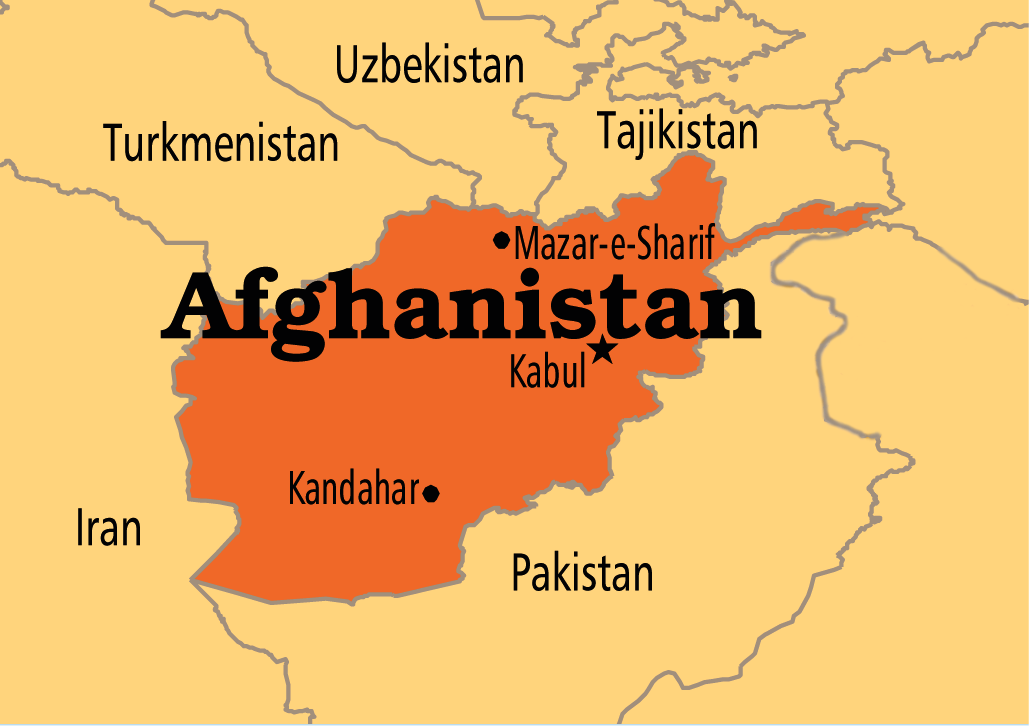International Relations
UN Report on the Taliban Regime
- 02 Jun 2022
- 7 min read
For Prelims: Afghanistan, Taliban, Islamic State, Location of Afghanistan
For Mains: India and its Neighbourhood, Effect of Policies & Politics of Countries on India's Interests, Crisis in Afghanistan and its Implications
Why in News?
According to the United Nations Security Council (UNSC)’s Analytical Support and Sanctions Monitoring Team, foreign terrorist organisations continue to enjoy safe haven under the new Taliban regime.
What is the Mission of the UNSC’s Monitoring Team?
- The monitoring team assists the UNSC sanctions committee and its report, circulated among committee members, informs the formulation of UN strategy in Afghanistan.
- India is currently the chair of the sanctions committee, which comprises all the 15 UNSC members.
- This report is the first since the Taliban returned to power in August 2021.
- This is the first of its reports not informed by official Afghan briefings.
- The team collected data by consulting with UN member states, international and regional organisations, private sector financial institutions, and the work of bodies such as the United Nations Assistance Mission in Afghanistan (UNAMA).
- UNAMA is a UN Special Political Mission established to assist the state and the people of Afghanistan in laying the foundations for sustainable peace and development.
How has India approached Afghanistan since the Taliban Regime?
- Ways of Engagement:
- After the Taliban takeover, India is caught in the middle of this dilemma divided between restoring Afghanistan as a strategic priority in its policy and the practical hurdles on the ground.
- Currently, India is assessing three broad ways of potential engagement with Afghanistan:
- providing humanitarian assistance, exploring a joint counterterrorism effort with other partners, and engaging in talks with Taliban.
- The end goal of all these is to restore people-to-people links and prevent backsliding of the gains Delhi’s developmental aid has made in Afghanistan in the past two decades.
- India has undertaken more than 400 key infrastructure projects in all 34 Afghan provinces and has signed strategic agreements to enhance trade and bilateral relations.
How has Terrorism affected the Relations between the two?
- India’s policies toward Afghanistan have been underpinned by the terrorism threat that emanates from Pakistan.
- India is cautious about a terror corridor that might be facilitated from eastern Afghanistan leading up to Kashmir, should a land-based link be established.
- India has consistently reaffirmed its support for UNSC Resolution 2593 and staunchly maintains that Afghan soil should not be used for anti-India terrorist activities.
- Counterterrorism is likely to play an increasingly pertinent role in shaping India’s policies vis-à-vis Afghanistan, even as India seeks an alignment in its broader Indo-Pacific obligations and its immediate South Asian goals.
- India has demonstrated a growing interest in developing more robust counter-terror approaches across various multilateral fora, including the UNSC and the Shanghai Cooperation Organisation.
Why is Afghanistan Significant for India?
- Economic and Strategic Interest: Afghanistan is a gateway to the oil and mineral-rich Central Asian republics.
- Afghanistan's main advantage is its geography, as anyone who is in power in Afghanistan controls the land routes connecting India with Central Asia (via Afghanistan).
- Located at the heart of the historic Silk Road, Afghanistan was long the crossroads of commerce between Asian countries connecting them to Europe, and enhancing religious, cultural, and commercial contacts.
- Developmental Projects: The massive reconstruction plans for the country to offer a lot of opportunities for Indian companies.
- Three major projects: the Afghan Parliament, the Zaranj-Delaram Highway, and the Afghanistan-India Friendship Dam (Salma Dam), along with India’s assistance of more than USD3 billion in projects, hundreds of small development projects (of schools, hospitals and water projects) have cemented India’s position in Afghanistan.
- Security Interest: India has been the victim of state-sponsored terrorism emanating from Pakistan supported terrorist group operating in the region (e,g. Haqqani network). Thus, India has two priorities in Afghanistan:
- to prevent Pakistan from setting up a friendly government in Afghanistan, and
- to avoid the return of jihadi groups, like al Qaeda, which could strike in India.
Way Forward
- In its wait and watch policy, India’s stance on the official recognition of Afghanistan under the Taliban and engaging Kabul finds resonance with most international and regional countries.
- India is reluctant to draw sharp conclusions on the nature of the Taliban rule.
- However, there is a realisation that India should stay relevant and preserve its influence in the region.
- While Delhi sought to convene critical stakeholders and pave a new political roadmap for a unified regional response to the Taliban, it experienced multiple hurdles in convincing the South Asian neighbourhood to align with its leadership.
- For instance, Pakistan and China chose to attend the Troika-plus deliberations, instead of joining India.
- These competing approaches to Afghanistan will be a reality going forward. A realistic assessment of its goals, both long-term and short-term, together with readjustments, is the need of the hour in framing a strategically sustainable Afghanistan policy.





